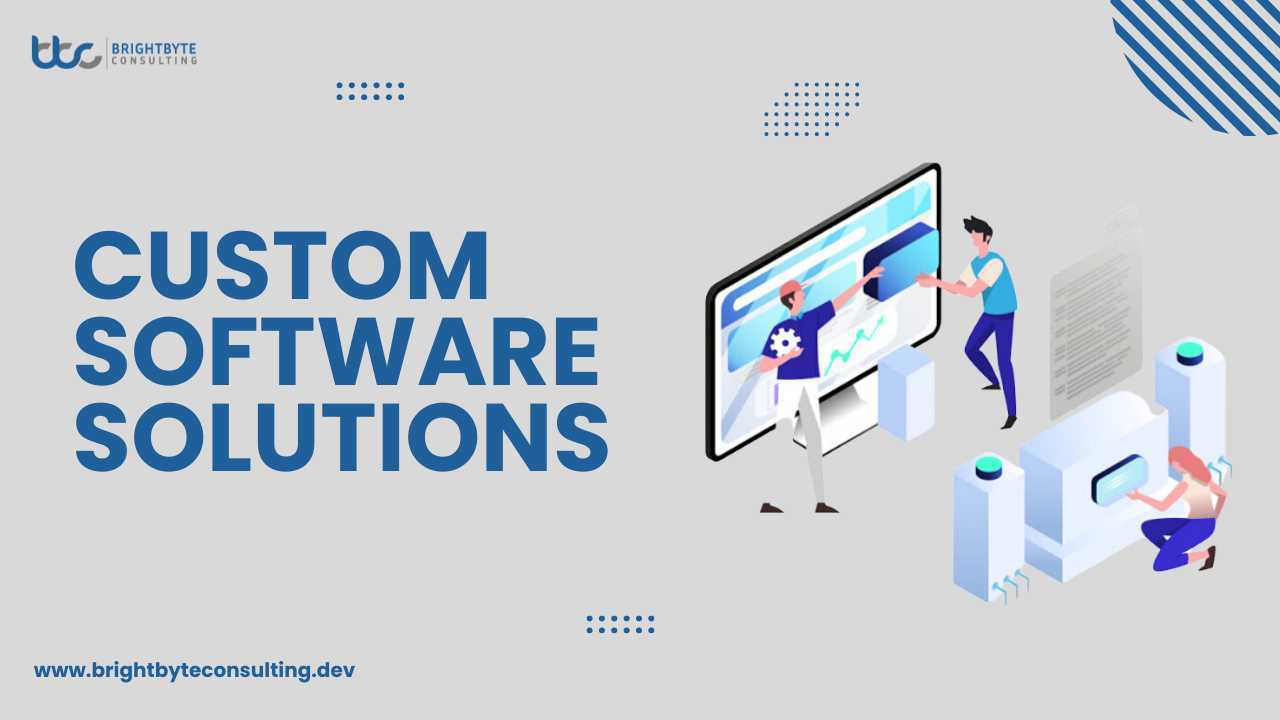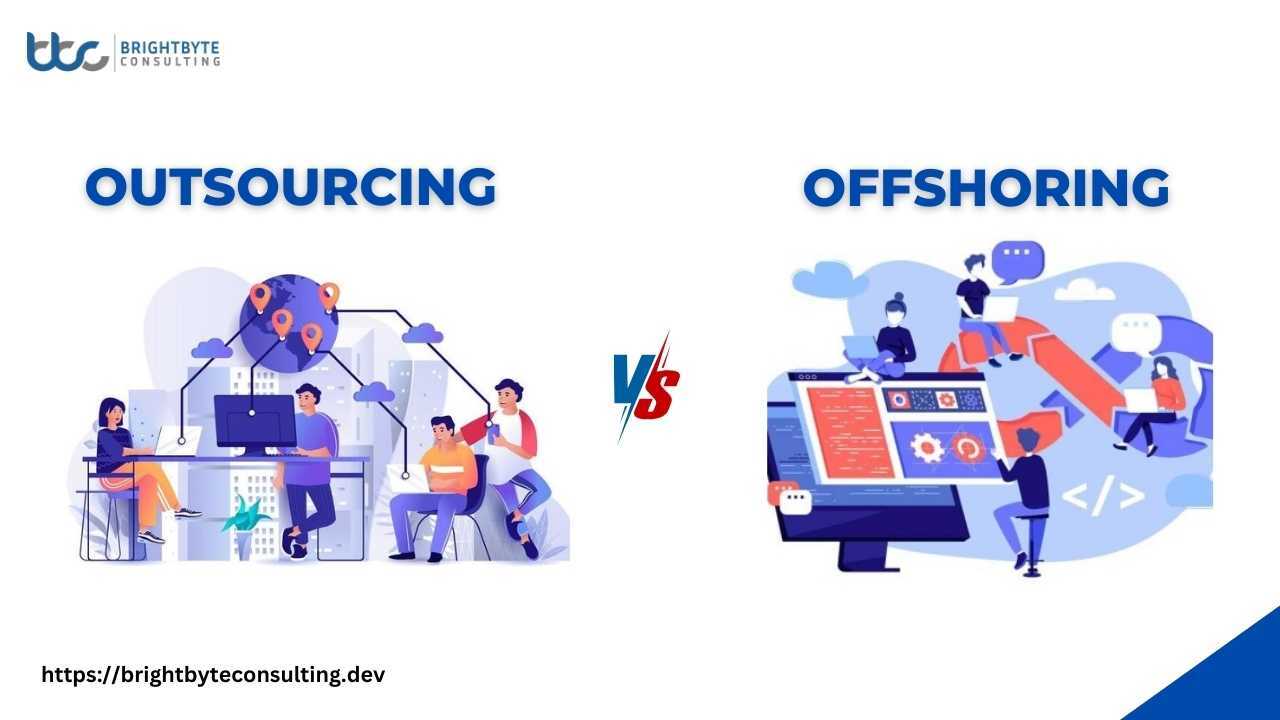Customized software makes your business stand out from the competition. How? It enhances your operations with custom tools, innovative ideas, and tailored strategies. Let’s explore some prime examples of custom software solutions.
Every business owner strives to be unique, aiming for their product to be the best in the market. Whether in retail, customer service, real estate, mobile apps, or advanced technology, custom IT solutions are the key. Unlike ready-made options, custom software solutions are specifically crafted to meet your unique needs.
Convinced that custom software solutions are superior to ready-made alternatives? Let’s take a closer look at some of the best examples of custom software solutions that can transform your business.
What Are Custom Software Solutions?
Custom software solutions are tailored applications designed to meet the specific needs of a business or organization. Unlike off-the-shelf software, which is built for a broad audience with generalized requirements, custom software is developed to address the unique challenges and goals of a particular business.
Key Features of Custom Software Solutions
Personalization:
Designed to fit your exact business processes and requirements.
Scalability
Can grow and adapt with your business, ensuring long-term usability.
Efficiency
Streamlines operations by integrating seamlessly with your existing systems.
Competitive Edge
Provides unique features that set your business apart from competitors.
Flexibility
Easily modified and updated to reflect changing business needs and market conditions.
Integration
Works with other software and tools you already use, enhancing overall efficiency.
Security
Enhanced protection tailored to your specific security needs and risks.
Types Of Custom Software
| Types | Features | Best For Industries | Top Companies Use |
| Content Management Systems (CMS) | User-friendly interface, customizable templates, SEO tools, multi-language support, content scheduling, and version control | Media, Marketing, Education | WordPress, HubSpot, Adobe |
| Customer Relationship Management System (CRM) | CRM helps in contact management, sales tracking, lead management, email integration, analytics, and reporting | Sales, Marketing, Customer Service | Salesforce, HubSpot, Zoho |
| Enterprise Resource Planning Software (ERP) | Integrated modules for finance, HR, supply chain, inventory, project management, and analytics | Manufacturing, Retail, Healthcare | SAP, Oracle, Microsoft Dynamics |
| E-commerce Software | Product management, shopping cart, payment gateway integration, order tracking, customer reviews, and marketing tools | Retail, Wholesale, Fashion | Shopify, Magento, WooCommerce |
| Operation Management System | Workflow automation, task scheduling, resource allocation, real-time tracking, reporting, and analytics | Manufacturing, Logistics, Hospitality | Honeywell, IBM, Microsoft |
| Enterprise Software Solutions | Comprehensive suite of tools for business processes, data management, security features, scalability, and customization | Large Enterprises across various industries | IBM, Oracle, SAP |
How to Develop Custom Software Applications?
Developing a custom software application requires careful planning, execution, and testing to ensure it meets the specific needs of your business. Here’s a step-by-step guide to help you through the process:
Define Your Requirements:
Define your requirements by identifying the specific goals and objectives of the software. Gather input from stakeholders to understand their needs and document all functional and non-functional requirements comprehensively.
Plan Your Development Process:
Plan your development process by deciding on the development methodology (e.g., Agile, Waterfall). Create a project timeline and allocate resources accordingly, ensuring to define roles and responsibilities within your development team.
Design the Application:
Design the application by creating a detailed software architecture and design. Decide on the technology stack and frameworks to be used, and design the user interface (UI) and user experience (UX) elements.
Development Phase:
During the development phase, start coding based on the design specifications. Break down the development tasks into manageable sprints or iterations. Regularly review and test the code to identify and fix any issues promptly.
Testing and Quality Assurance:
Conduct thorough testing of the software to ensure functionality and reliability, including unit testing, integration testing, and system testing. Address any bugs or issues discovered during testing to maintain high-quality standards.
Deployment:
Prepare for deployment by configuring servers and databases. Create documentation for end users and administrators, and deploy the software to the production environment.
Maintenance and Support:
Provide ongoing maintenance and support for the software, monitor performance and address any issues that arise, and implement updates and enhancements based on user feedback and changing business needs.
Feedback and Iteration:
Collect feedback from users and stakeholders to identify areas for improvement. Also, continuously refine and enhance the application, and ensure it remains effective and relevant.
At Bright Byte Consulting, we specialize in delivering custom software solutions tailored to your unique business needs. Our expert team works closely with you through every stage of development, from defining requirements to deployment and maintenance. With our commitment to excellence, we help you navigate the complexities of software development, enabling your business to thrive in today’s dynamic digital landscape.
Benefits of Custom Software Solutions
Some of the main benefits of custom software solutions are as follows:
- Improved Productivity: By automating and optimizing workflows, custom software applications can significantly boost productivity.
- Cost-Effectiveness: While the initial investment may be higher, the long-term savings and efficiency gains often outweigh the costs.
- Enhanced Customer Experience: Offers better Custom Software Development Services to customers through personalized interactions and streamlined processes.
- Data Analysis: Custom software can be designed to gather and analyze data in ways that are most beneficial to your business.
Conclusion
Custom software solutions offer tailored solutions to businesses, enhancing their operations and providing a competitive edge. With personalized tools, innovative ideas, and tailored strategies, businesses can stand out in the market and achieve their goals more effectively. Whether in retail, customer service, real estate, or advanced technology, custom IT solutions are key to success. By understanding the key features, types, and development process of custom software applications, businesses can leverage these solutions to transform their operations and drive growth.
FAQs
What are custom software solutions?
Custom software solutions are tailored applications designed to meet the specific needs of a business or organization, unlike off-the-shelf software.
What are the key features of custom software solutions?
Key features include personalization, scalability, efficiency, competitive edge, flexibility, integration, and security.
What types of industries benefit from Custom Software Development Services?
Various industries such as media, marketing, education, sales, manufacturing, retail, healthcare, logistics, and hospitality benefit from custom software solutions.
Which companies use Custom Software Applications?
Top companies like Salesforce, SAP, Shopify, and IBM utilize Custom IT Solutions to streamline their operations and gain a competitive advantage.
How are custom software applications developed?
Custom software applications are developed through careful planning, execution, and testing, involving defining requirements, planning the development process, designing the application, development phase, testing, deployment, maintenance, and support.
What are the benefits of custom software solutions?
Benefits include improved productivity, cost-effectiveness, enhanced customer experience, and effective data analysis, tailored to the specific needs of the business.











